Questões sobre Gramática
Lista completa de Questões sobre Gramática para resolução totalmente grátis. Selecione os assuntos no filtro de questões e comece a resolver exercícios.
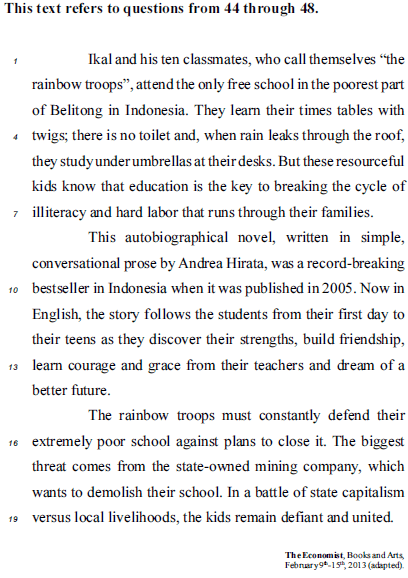
In who call themselves (l.1), who is
- A.
a conjunction.
- B.
a relative pronoun.
- C.
an object pronoun.
- D.
an interrogative pronoun.
- E.
a preposition.
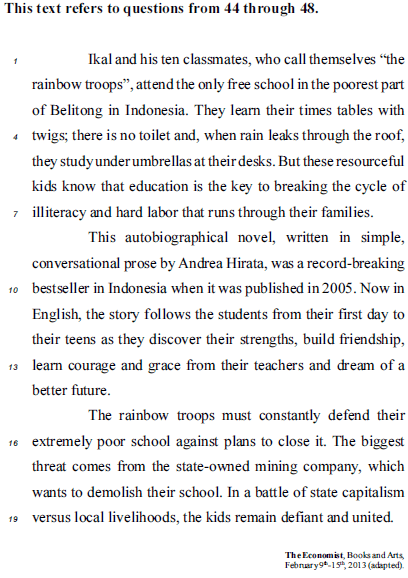
The word But (l.5) is
- A.
a conjunction.
- B.
a noun.
- C.
a pronoun.
- D.
an adjective.
- E.
a preposition.
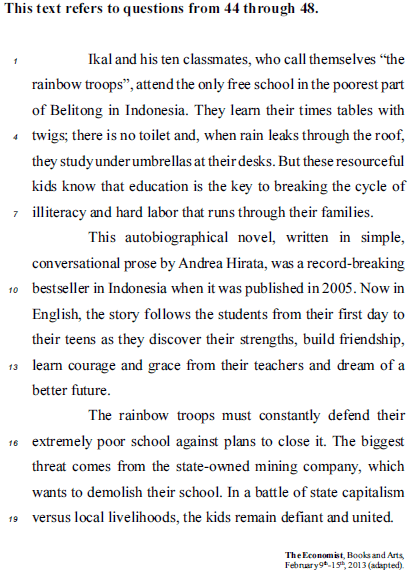
The noun illiteracy in the cycle of illiteracy (l.6-7)
- A.
is composed of a suffix.
- B.
is composed of a prefix.
- C.
is composed of two prefixes.
- D.
is composed of a prefix and a suffix.
- E.
has no affixes.
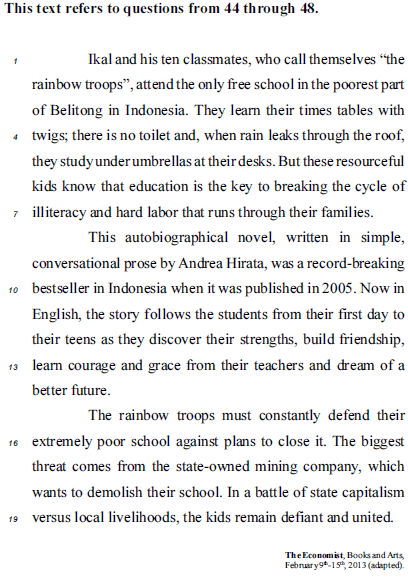
The verb form written in written in simple, conversational prose (l.8-9) is in the
- A.
simple past.
- B.
imperative.
- C.
simple future.
- D.
past participle.
- E.
simple present.
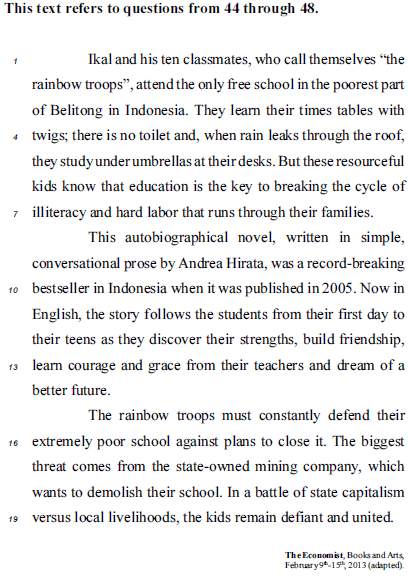
In the sentence The rainbow troops must constantly defend their extremely poor school against plans to close it (R.15-16), the modal verb must expresses
- A.
permission.
- B.
suggestion.
- C.
recommendation.
- D.
necessity.
- E.
prohibition.
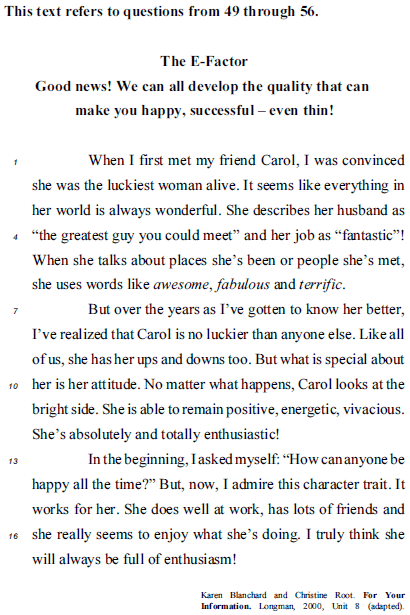
In the clause When I first met my friend Carol (l.1), the verbal form is in the
- A.
past participle.
- B.
simple future.
- C.
present perfect tense.
- D.
simple past tense.
- E.
simple present.
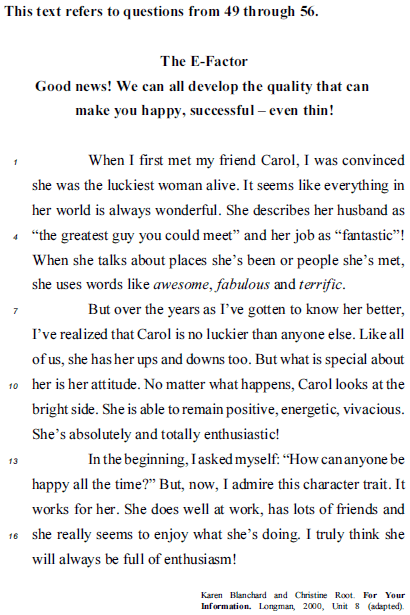
If the clause she was the luckiest woman alive (l.2) had been used in the simple present tense, the verbal form was should be replaced by
- A.
am.
- B.
are.
- C.
has.
- D.
were.
- E.
is.
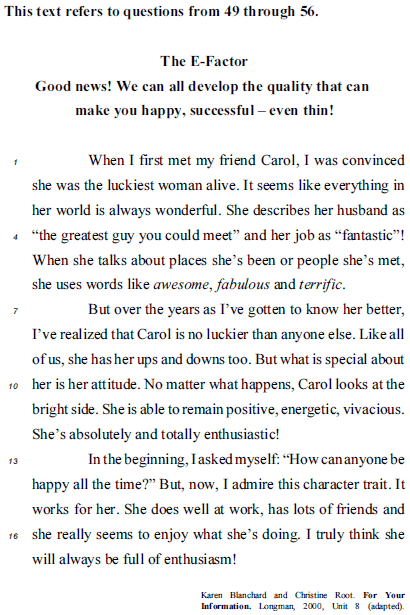
In the clause the greatest guy you could meet (l.4), the modal verb could expresses
- A.
possibility.
- B.
suggestion.
- C.
recommendation.
- D.
prohibition.
- E.
permission.
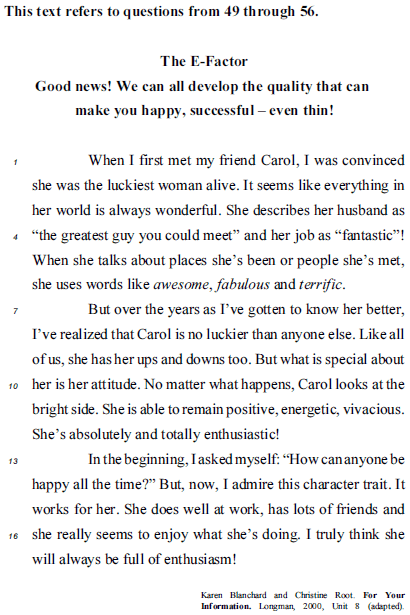
The clauses in places shes been or people shes met (l.5) are in the
- A.
past perfect.
- B.
simple present.
- C.
simple past.
- D.
imperative.
- E.
present perfect.
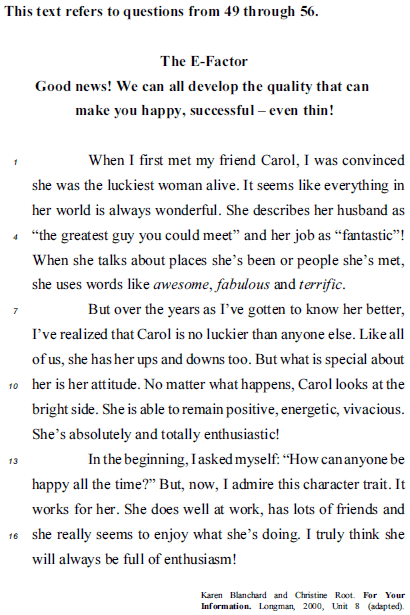
The words awesome, fabulous and terrific (l.6) are
- A.
adjectives.
- B.
prepositions.
- C.
conjunctions.
- D.
nouns.
- E.
verbs.


